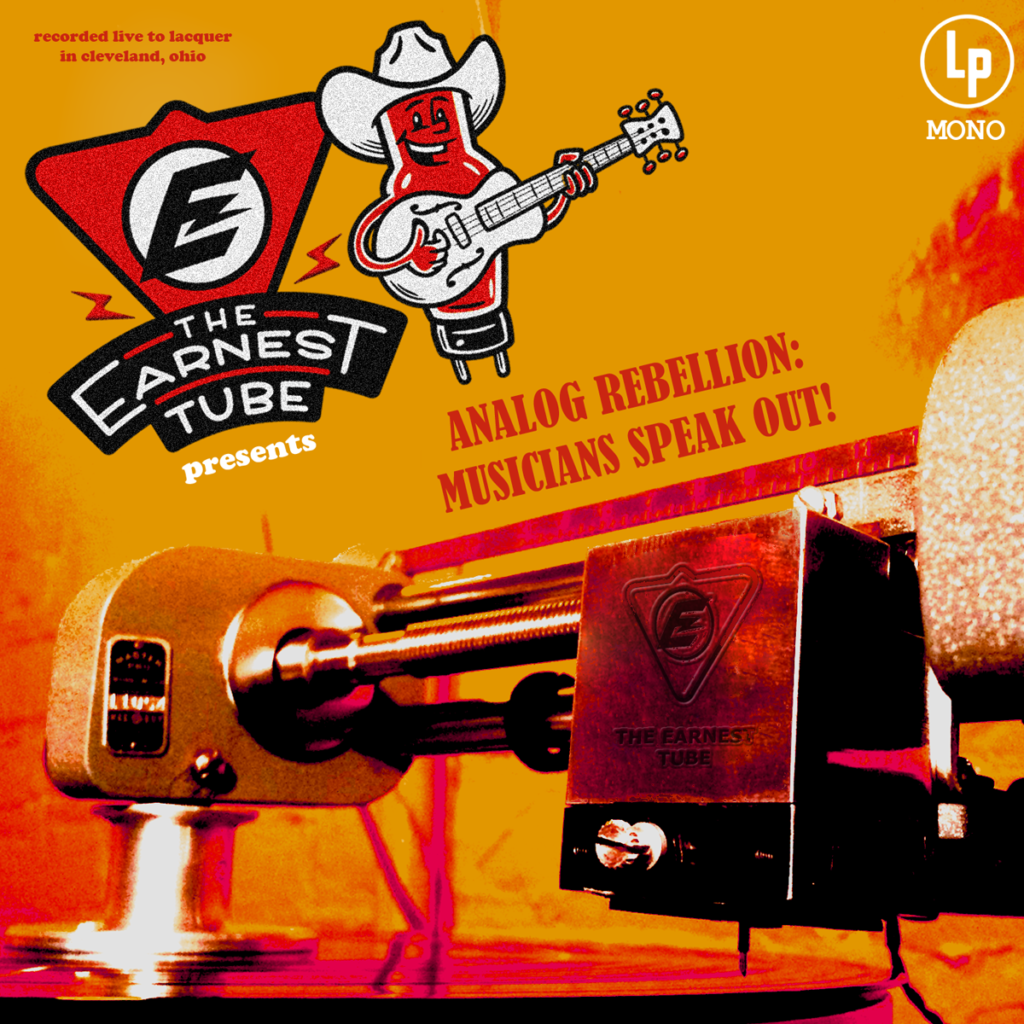
For what it’s worth, rock music has been fighting the power since its earliest inception.
It’s this sentiment that is fueling the current crowd-funding effort “Analog Rebellion,” which features 10 diverse Cleveland-based musicians singing about social issues.
Behind the project is disc-cutting engineer by trade Clint Holley and audio engineer Dave Polster. The duo started specialized direct-to-disc studio the Earnest Tube, which provides a pre-1950s recording experience. Musicians highlighted in “Analog Rebellion” include Northeast Ohio blues, country, folk and rock artists Ray Flanagan, Lawrence Daniel Caswell, Angelisa Crognale, Sands and Hearn, Aaron Civil War, Elizabeth Kelly, Jason Schaffer, Gretchen Pleuss, R.A. Washington and Brent Kirby.
With a deadline of December 31 to raise $2,500 on local fundraising platform Gotta Groovebot, Holley and Polster hope the project moves forward with proceeds from the 12-inch vinyl compilation album going to the American Civil Liberties Union.
CoolCleveland talked to Holley about the “Analog Rebellion,” The Earnest Tube and preaching to choir.
CoolCleveland: Let’s start out talking about the impetus behind “Analog Rebellion.”
Clint Holley: The project was tied to the current political climate, primarily the election last year. A lot of people get on Facebook and complain about politics, but in the end I don’t really see a whole lot getting done. I’m a big adherent of the “Act local, influence global” idea. We tried to figure out what we could do on a local level to kind of move things forward a little bit. We brainstormed an idea of putting an album together with local musicians and songs that spoke to a socially conscious message. Not all of the songs are straight-out protest songs, and they cover a lot of different topics.
CC: Tell us about the Earnest Tube.
CH: The Earnest Tube is a direct-to-lacquer style recording process. It’s very much in the vein of how records were recorded prior to 1950. So if you think old Robert Johnson or Carter Family records, they were recorded directly to a disc rather than a tape recorder because there was no such things as tape recorders then. We acquired a lot of the gear that was popular during that time period. We taught ourselves how to record people in that fashion with one microphone in a room and a cutting machine.
CC: What was the reaction among local musicians about not only the album, but also the recording process?
CH: It was fantastic. When we started this whole Earnest Tube idea of recording people, we thought they might really think it was a gimmick or kind of a joke, but the artists really responded well. In this age of Pro Tools and digital recording, when everything is changeable and you have an infinite amount of options to do pretty much everything, this is pretty much the polar opposite of that. You sit down in front of one microphone and you make a commitment to that performance that happens in that room at that time. I think people really responded well to it, and the artist feedback has been super positive. People really rose to the occasion.
CC: Can you elaborate on what the recording process was like for “Analog Rebellion” musicians?
CH: We thought, what if somebody sits down and can’t do the song in one take? But everybody did. One of our favorite stories was a girl named Elizabeth Kelly who’s in a band called the Village Bicycle. Her session lasted about 15 minutes. She sat down and nailed it. We all looked at each other and were like, “OK, I guess the session is over.” A few people needed a few times, but no sessions lasted more than an hour to get a song. We tried to get a good cross-section of people from Northeast Ohio as a showcase and to show people that music still has a voice.
CC: Finally, in today’s political climate, a project like “Analog Rebellion” will either be viewed as preaching to the choir or, well, fake news. What do you hope people take away from hearing the album?
CH: Right. Exactly. I just hope the fans of each individual artist take advantage of listening to it and if they’re a fan of say Ray Flannigan or Brent Kirby, maybe they walk away a fan of Elizabeth Kelly or R.A. Washington or all of the other people. Maybe there’s a certain element of preaching to the choir there, but at least it’s a choir that hopefully kicks in a little bit of money we’re going to give to the ACLU. It’s just one of those things, let’s act locally and also showcase the amount of musical talent that is actually here in Northeast Ohio.